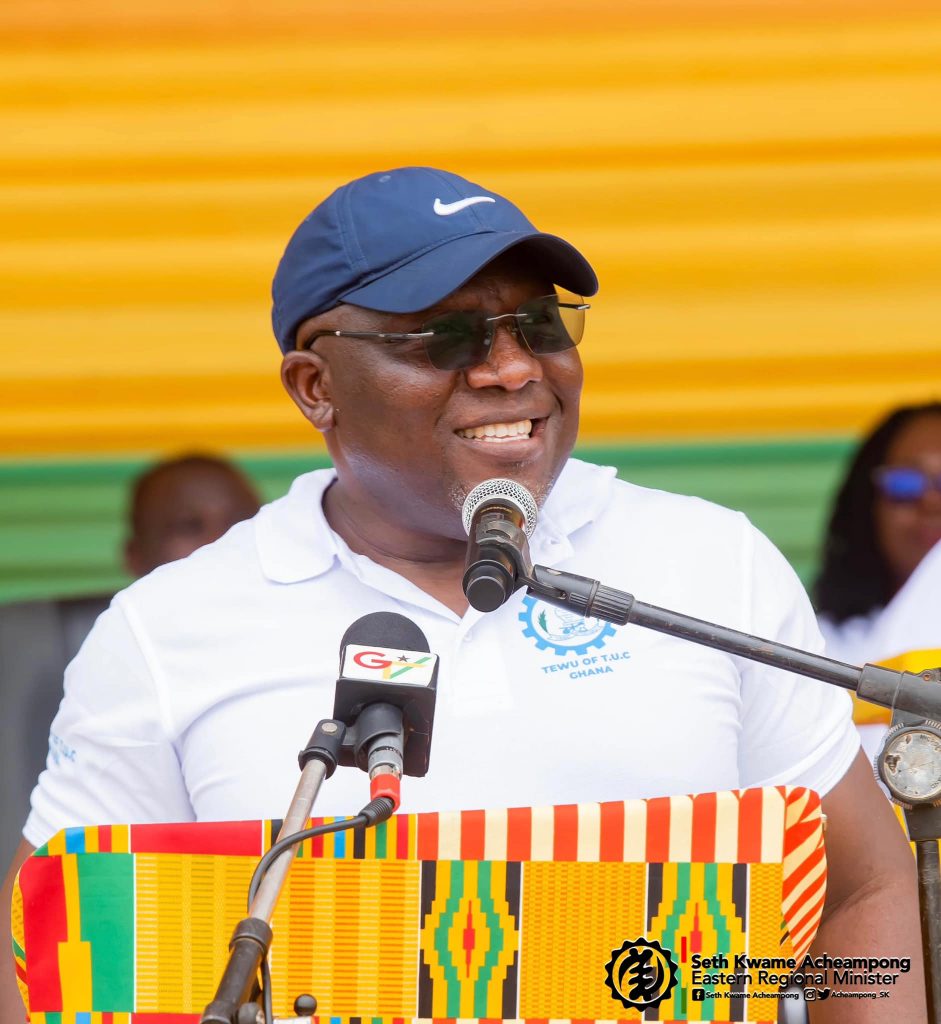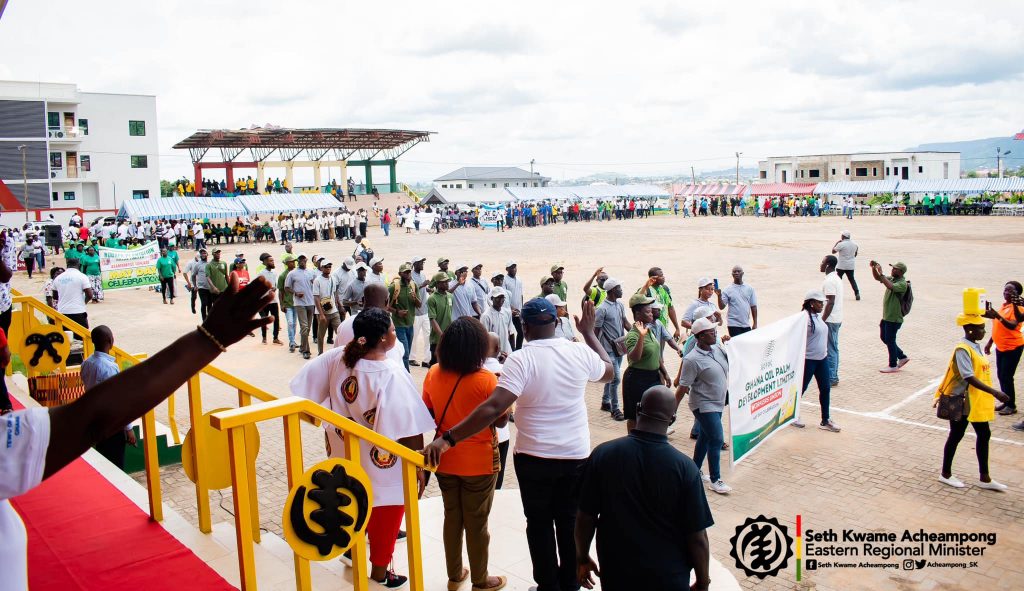The Honourable Eastern Regional Minister, Mr. Seth Kwame Acheampong has implored organised labour to be guided by the data on compensation whenever they sit around the negotiation table to push for wage adjustments. He observed that this has become imperative given the fact that the current country’s economic situation was not in the best of shape due to global economic challenges.

While accepting that workers deserve an improved condition of service, he encouraged them to collectively work together with the government to shore up domestic revenue and grow the economy to provide the fiscal space needed to improve their remuneration. He consequently called on the National Tripartite Committee and the Public Sector Joint Standing Negotiating Committee to ensure that negotiations for pay and compensations are based not only on the cost of living and productivity indicators but also on the ability-to-pay indicators such as domestic revenue performance and budget constraints.

Speaking on the theme for this year’s celebration, “Protecting incomes and Pensions in the era of Economic crises: Our responsibility”, Hon. Acheampong indicated that the adverse global developments such as COVID-19 and the war in Ukraine have impacted severely the exchange rate and inflation with the overall effect of weakening the real incomes of people in Ghana as being witnessed in other parts of the world. This he said, has negatively affected the living standards of workers in the country and the outside world. He noted that the rising petroleum prices, escalating food prices, rise in general cost of living and above all reduced income and real income levels had negative effects on the living standards of the citizenry.
He urged organised labour to continue to resolve issues through dialogue and indicated that “agitations on the labour front in any jurisdiction have the potential of impacting negatively on productivity and making compensation payments unsustainable, if not well managed; ……….; It is not pleasant to witness such situations as it is also not the wish of government that they even crop up”.
He reiterated the government’s commitment to resolving the country’s economic crisis, adding that the government had made considerable progress in securing a bailout from the International Monetary Fund (IMF). According to the minister, government mitigation measures such as cutting discretionary expenditures of Ministries, Departments and Agencies (MDAs) by 30%, salaries of government Appointees reduced by 30% and fuel coupon allocation reduced by 50% were some of the measures adopted to turn around the current economy into a desired one anticipated.
He consequently congratulated workers for their dedication to serving Mother Ghana and encouraged them to continue to have hope in the government as she works hard to ensure macroeconomic stability for the much-needed growth and development to better the lives of the people in the country.
Reading the General Secretary of Trade Union Congress’ (TUC) speech, the Regional Secretary of the Union, Mrs. Phyllis Agyemang urged the government to find and implement programmes and policies that would ensure sustainable development rather than resort to the IMF programme which has over the years proven not to be the solution of the country’s problems.
“The reason Ghana has had to seek IMF support almost every three years is largely due to the flaws in the way our economy has been managed based on the new liberal market ideology,” she said, adding that “the IMF programme can never take us out of this crisis; our history of engagements with the IMF provides ample evidence that IMF sponsored programmes and policies cannot change our economic circumstances; another IMF programme will only impose more economic burden on us”.
She expressed the belief that government can lead the country out of the economic challenges without the IMF bailout through prudent spending. “We have to change the situation ourselves as Ghanaians; we believe strongly that government can lead us out of this crisis, and the government can do so by cutting expenditure on non-essentials including the need to stop spending on a National Cathedral” she emphasised. She also called on the government to reduce the size of the government by reducing the current number of Ministers and Deputy Ministers serving in the government.
The event brought in high-profile personalities to Jubilee Park who participated and celebrated workers. Some of the personalities include some Eminent Clergy, Traditional Authorities, Heads of Security Services, Heads of Departments and Institutions and Labour Unions,

